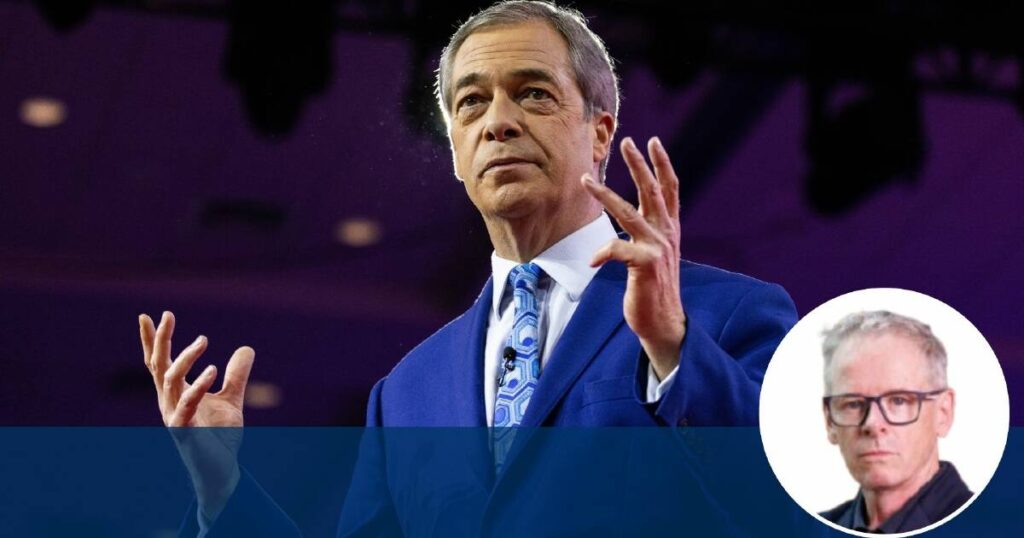
The rise of Nigel Farage, a prominent figure in British politics, underscores a significant shift in how political influence is wielded. Despite securing only five seats in the 650-member House of Commons in 2024, Farage’s Reform Party has managed to dominate media coverage and public discourse, challenging traditional political norms.
This development comes at a time when the political landscape in the United Kingdom is undergoing a seismic shift. Just a year after Keir Starmer’s Labour Party achieved a record majority, polls now suggest that Farage’s Reform Party could win over 300 seats if an election were held today. This potential reversal of fortunes for Labour, which could see its seats plummet from 401 to as few as 80 or 90, highlights the volatile nature of contemporary politics.
The Farage Phenomenon
Nigel Farage’s political journey is marked by a series of contradictions. Known as “Mr. Brexit,” Farage has been a vocal critic of the European Union while simultaneously serving as a Member of the European Parliament for two decades. His ability to galvanize support despite such contradictions mirrors the political strategy of figures like Donald Trump, where perceived hypocrisies are often dismissed by a loyal base.
Farage’s influence extends beyond the UK, with potential implications for countries like Australia. The Australian Prime Minister, Anthony Albanese, recently addressed the British Labour conference, emphasizing the need to defend democracy and promote unity in the face of rising populist sentiments.
Implications for Australia
The rise of Farage and his party poses significant questions for Australia, particularly in terms of its international alliances and domestic political strategies. Albanese’s involvement in British politics has sparked criticism from some quarters, with opposition figures like Michaelia Cash accusing him of partisanship. However, the broader context suggests a strategic effort to counteract the influence of populist movements that could destabilize key allies.
Australia’s strategic interests are closely tied to the stability of its allies, including the UK. The potential for Farage’s influence to spread could impact Australia’s foreign policy, especially concerning AUKUS, the trilateral security pact between Australia, the UK, and the US. A shift in British politics towards a more populist stance could complicate these alliances.
Learning from History
The rise of populist movements is not unique to the UK. Similar trends have been observed in Italy, Germany, France, and the United States. These movements often gain traction when economic conditions for working people deteriorate, leading to increased xenophobia and political instability.
“When living standards for working people are not maintained, xenophobes flourish and the centre, no matter how long it has held, fails.”
Australia’s Labor Party has recognized this dynamic, advocating for policies like minimum wage increases to support working-class citizens and counteract the appeal of populist rhetoric.
Unity as a Strategic Imperative
Albanese’s message to the British Labour conference emphasized the importance of unity within the party and the broader political landscape. Drawing on historical lessons, he highlighted the need for solidarity to drive change and counteract divisive populist narratives.
“Unity of labour is the hope of the world. That has always been labour at our best. Unity of party – and unity of purpose.”
This call for unity is not just a political slogan but a strategic imperative in the face of rising populist movements that thrive on division and fear.
As the political landscape continues to evolve, both in the UK and globally, the lessons from Farage’s rise will be critical for political leaders and parties seeking to navigate this new era of politics. The ability to adapt, unite, and address the underlying economic and social issues will determine the future trajectory of democratic governance.






